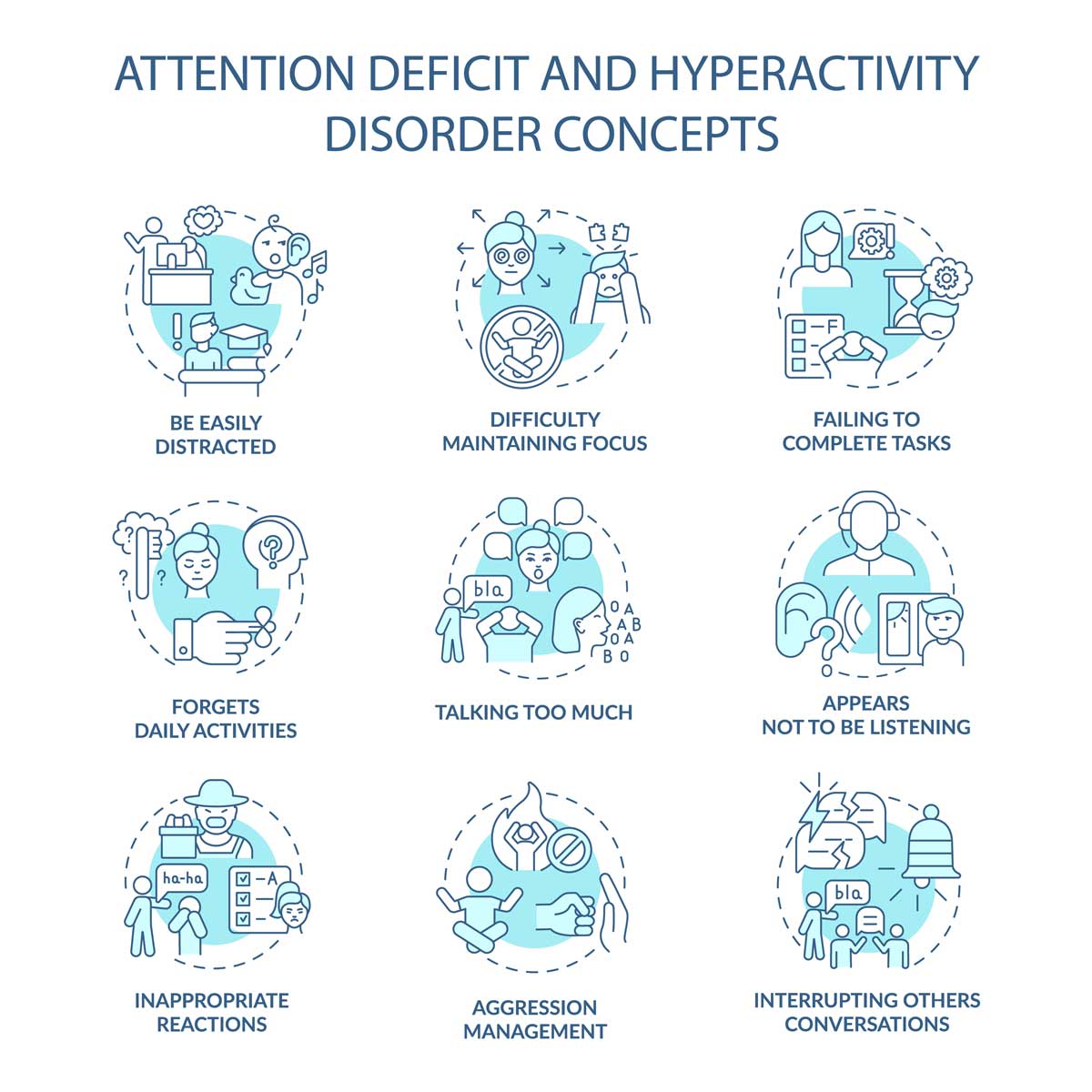ADHD
Attention-Deficit/Hyperactivity DisorderAttention-deficit/hyperactivity disorder (ADHD) is a neurodevelopmental disorder characterized by inattentiveness, impulsivity-hyperactivity, or both. Most cases of ADHD are diagnosed in childhood and adolescence, and a good proportion of affected youth retain at least some of their symptoms into adulthood. ADHD can also be initially diagnosed in adulthood and can present with different symptoms and impairments.
Prominent symptoms of adult ADHD include inattention to details, forgetfulness, difficulty sustaining attention and concentration when performing tasks or when interacting with others, difficulty initiating or organizing tasks, irritability, impulsivity, and difficulty regulating emotions. Untreated, these symptoms can result in significant personal, social, and economic impairments such as conflictual or failed relationships, poor occupational functioning or unemployment, legal problems, substance use, and suicidality.
People with ADHD are also more likely to suffer from other psychiatric conditions such as depression, anxiety, and personality disorders. It is debatable whether these co-morbidities occur independent of ADHD, or because of the toll untreated ADHD takes on patients.
The treatment of adult ADHD includes medication and/or therapy. Medications target several neurochemical circuits that regulate attention, executive functioning, and emotional regulation. These pathways rely on neurotransmitters such as dopamine and norepinephrine to function appropriately, and – for genetic and/or environmental reasons – their function is disturbed in ADHD. Medications based on amphetamines (e.g., Adderall and Vyvanse), or based on methylphenidate (e.g., Ritalin, Concerta, Focalin), commonly referred to as ‘stimulants’ work to increase the availability and of the neurotransmitters in the ADHD circuitry. Non-stimulant medications such Strattera (atomoxetine), guanfacine ER (Intuniv), clonidine ER (Kapvay), and viloxazine (Qelbree) also treat ADHD and may be more appropriate for some people. For some individuals non-medication treatments may be more appropriate. Cognitive-behavioral and mindfulness-based therapies may serve as primary treatments, or as adjuncts to medication in helping build organizational and social skills.

